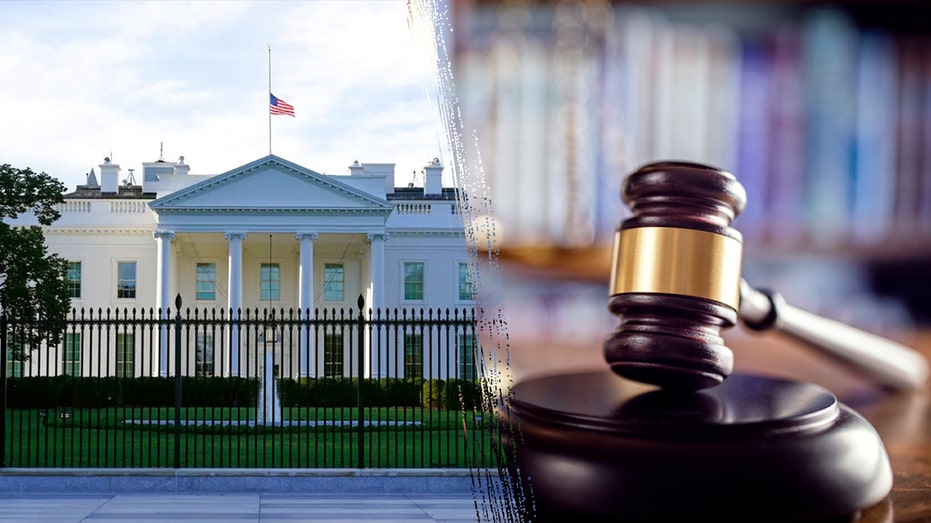In the complex landscape of American law, few strategies have become as controversial as “judge shopping.” This term refers to the practice of choosing specific venues or courts in anticipation of favorable ruling outcomes. While this tactic isn’t exclusive to any one party or individual, its implications have been particularly pronounced in cases involving former President Donald Trump and his policies. The legal fights over his agenda have shaped not only his presidency but also how parties engage with the judicial system.
Trump’s tenure in office was marked by numerous contentious policies, many of which faced swift challenges in federal courts. From immigration bans to environmental regulations and healthcare reforms, Trump’s agenda incited considerable legal resistance. Critics and supporters alike have observed that the selection of favorable judges has played a pivotal role in shaping the outcomes of these legal battles.
Judge shopping typically involves seeking out jurisdictions where the laws might be interpreted more leniently or where previous case rulings have favored specific legal interpretations. For instance, plaintiffs opposing Trump’s controversial policies may strategically file lawsuits in districts known for their more liberal judges, while defense lawyers may do the reverse, seeking out more conservative venues.
The practice of judge shopping raises essential questions about the integrity of the legal process. While it is within the rights of lawyers to pursue cases in sympathetic courts, the potential for manipulation becomes a concern. Critics argue that this undermines the principle of judicial impartiality, as cases may be influenced more by the judges’ ideologies than by the rule of law.
One notable instance of judge shopping took place regarding the travel ban that Trump instituted shortly after taking office. Federal judges in multiple states issued injunctions against the ban, interpreting it as discriminatory. The fight eventually reached the Supreme Court, which ruled in favor of the final iteration of the ban. However, the targeting of specific judges to hear these cases exemplified how strategically choosing venues can affect legal outcomes.
Moreover, the legal challenges against Trump’s policies extend to a variety of domains, including immigration, environmental regulations, and healthcare reforms. For example, environmental advocacy groups challenged Trump’s rollbacks of various environmental protections. These cases often ended up in jurisdictions where judges had a history of prioritizing environmental concerns, highlighting how legal strategy can shape the discussion surrounding critical issues.
A related aspect of this practice is the potential for “forum shopping,” a strategy where parties scout for jurisdictions with favorable procedural rules or laws, which may significantly benefit their cases. For example, a plaintiff might choose to file a case in a state court known for being more lenient in liability cases rather than a court perceived as more stringent. This not only affects the speed at which cases are resolved but also how they unfold in terms of jury pools and judge interactions.
As judge shopping has evolved, so has the political landscape surrounding the judiciary itself. Trump’s presidency manifested in the appointment of numerous federal judges—over 200—across various courts during his term. With a significant number of appointments skewed toward conservative judges, this has created a battleground where legal strategies must adapt rapidly based on the ideological leanings of the judges involved.
Legal experts have expressed concern that the ongoing dynamic could yield a form of judicial polarization, where cases are perceived as more about the judges’ political affiliations than the legal principles at stake. Janna Malamud, a legal analyst, pointed out how the increasing focus on judge selection undermines public trust in the judiciary, highlighting the need for a more transparent and equitable legal process.
As the 2024 presidential election approaches, the historical context of judge shopping becomes even more relevant. With Trump signaling intentions to run again, the legal challenges he faces are not only crucial for his political future but also for the broader legal landscape. Trump’s ability to mount a defense, potentially relying on sympathetic judges or favorable jurisdictions, may influence how cases unfold leading up to the election.
Legal scholars argue that a cycle could emerge, where parties continuously adjust their strategies based on prior legal outcomes. For example, if a challenging ruling emerges from a liberal judge, pro-Trump allies may rush to file preemptive actions in more conservative courts. This back-and-forth dynamic raises questions about the long-term implications for the judicial system and how citizens perceive justice in the context of political agendas.
However, it is essential to recognize that this form of legal maneuvering is nothing new in the American judicial system. Businesses, individuals, and interest groups have historically engaged in similar strategies to influence legal outcomes. What distinguishes the current situation is the amplified visibility of such practices due to the media attention surrounding Trump’s legal battles and their political ramifications.
Moreover, the increasing complexity of litigation in this polarized political environment poses operational challenges for the judiciary itself. Court dockets remain overloaded, and the significance of major judicial decisions can reverberate well beyond the individual cases at hand. As judges navigate these waters, balancing the need for equitable outcomes with political pressures becomes more complicated.
Despite these challenges, legal experts argue that some steps can be taken to mitigate the negative effects of judge shopping. Increased education and awareness about judicial procedures could empower attorneys to pursue cases based on sound legal principles rather than political alliances. Additionally, fostering a judicial culture focused on impartiality through legal reform may help restore faith in the system.
As the nation moves forward, the intersection of politics, policy, and the judiciary will continue to evolve. Judge shopping, whether for or against Trump, serves as a reminder of how intricately intertwined the legal and political systems have become in contemporary America. The outcome of this interplay will undoubtedly shape not only the immediate resolution of legal challenges but the broader landscape of American jurisprudence for years to come.
In conclusion, “judge shopping” is not merely a tactical maneuver; it is reflective of the fundamental changes and challenges facing the legal system in the United States. As the legal challenges surrounding President Trump’s policies illustrate, the implications of strategic venue selection can have substantial effects on individual rights, public policy, and the functioning of the judiciary. The evolving dynamics of this practice will be crucial to observe in the years ahead, especially in the context of an impending election and the perpetual cultural and political shifts that define the modern political landscape.
































